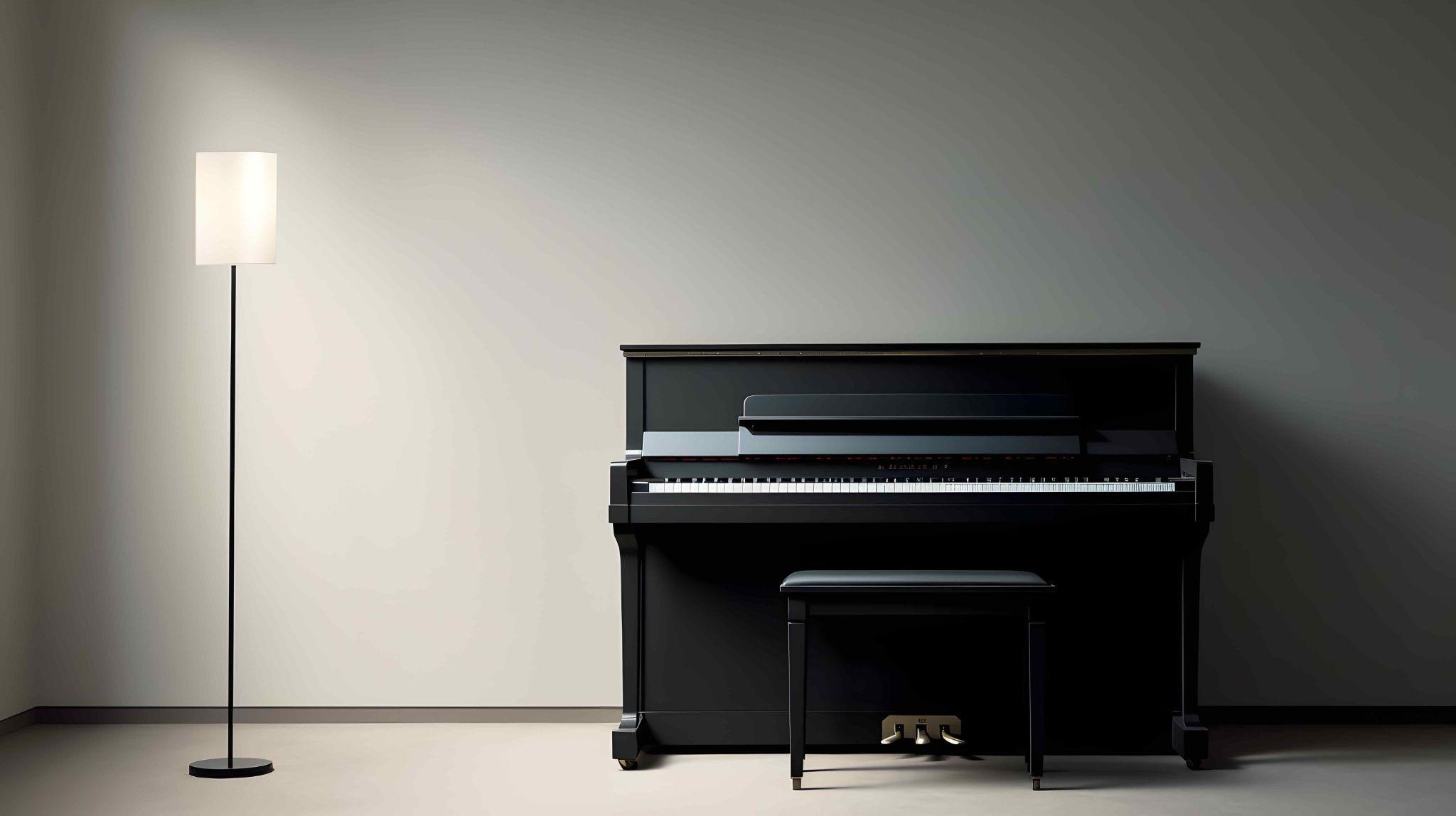Home>Production & Technology>Musician>How Much Does A Session Musician Get Paid


Musician
How Much Does A Session Musician Get Paid
Published: January 28, 2024
Discover the average pay rate for session musicians and learn what factors can affect how much a musician gets paid. Explore the earnings potential in the music industry.
(Many of the links in this article redirect to a specific reviewed product. Your purchase of these products through affiliate links helps to generate commission for AudioLover.com, at no extra cost. Learn more)
Table of Contents
Introduction
Music is a universal language that moves and inspires people of all walks of life. While most of us are familiar with the famous singers and bands that grace the stages and airwaves, there is a whole world of talented musicians working tirelessly behind the scenes to bring those songs to life. These unsung heroes are known as session musicians.
A session musician is a highly skilled instrumentalist or vocalist who is hired on a per-project basis to contribute to recordings or live performances. They are the unsung heroes who lend their talent and expertise to countless albums, concerts, and film scores. Without them, the music industry as we know it would not exist.
Unlike artists who perform their own music, session musicians are versatile and adaptable. They are able to quickly learn and perform a wide range of musical styles and genres, often embodying the sound and style desired by the artist or producer they are working with.
From pop and rock to jazz, classical, and beyond, session musicians are the chameleons of the music world, seamlessly shifting between different musical contexts to create the perfect sound. Their contributions are essential in adding depth, complexity, and emotion to a piece of music.
In addition to their technical prowess, session musicians also bring their creativity, innovation, and a deep understanding of music theory to the table. They can offer valuable insights and suggestions to enhance the composition and arrangement of a song, elevating it to new heights.
Despite their invaluable contributions, session musicians often work in the background, their names rarely recognized by the general public. Nevertheless, their impact on the music we hear and love is immeasurable.
In this article, we will explore the fascinating world of session musicians and delve into the factors that influence their pay. We will also discuss the average rates for session musicians and provide tips for negotiating fair and reasonable fees. So, if you’ve ever wondered how much session musicians get paid, read on to discover the truth behind this often mysterious profession.
What is a session musician?
A session musician, also known as a studio musician, is a highly skilled instrumentalist or vocalist who is hired on a per-project basis to contribute to musical recordings or live performances. They are versatile musicians who can adapt to different musical styles and genres, bringing their expertise to enhance the sound of a recording or a live performance.
Session musicians are often hired by artists, bands, producers, or composers to provide instrumental or vocal parts for their songs or compositions. They may be called upon to play a variety of instruments, such as guitar, bass, drums, keyboards, or brass and wind instruments. Their role is to bring a song to life, adding depth, texture, and musicality through their playing.
One of the key qualities that sets session musicians apart is their ability to learn and perform music quickly. They are often presented with sheet music or audio recordings of a song and are expected to familiarize themselves with the material in a short amount of time. This requires exceptional sight-reading skills and a strong understanding of music theory.
Furthermore, session musicians possess a deep understanding of different musical genres and styles. They can seamlessly adapt to various musical contexts, whether it is pop, rock, jazz, classical, R&B, or any other genre. This versatility allows them to meet the unique demands of different recording or performance projects.
Session musicians not only contribute their technical skills but also bring their creativity and musical sensibility to the table. They may be called upon to improvise solos, create unique arrangements, or provide suggestions to enhance the composition. Their contributions often elevate a song to a whole new level, infusing it with their own musical personality.
It’s important to note that session musicians are hired on a freelance basis and work as independent contractors. They may work with multiple artists or producers, and their schedules can be quite varied. Some session musicians make a career out of working exclusively as studio musicians, while others may balance session work with performing or teaching.
In summary, session musicians are the skilled professionals who bring music to life. They possess exceptional musicality, adaptability, and technical prowess, allowing them to contribute their talents to various recording or performance projects. Their role is crucial in the creation of music, providing the instrumental or vocal elements that make a song truly shine.
Factors influencing session musician pay
Session musicians are paid for the invaluable contributions they make to musical projects, and several factors come into play when determining their pay rates. Here are some key factors that influence session musician pay:
- Experience and Skill Level: The level of experience and skill of a session musician can significantly impact their pay. Seasoned musicians with a track record of successful projects and a high level of expertise often command higher fees due to their reputation and the demand for their services.
- Scope and Complexity of the Project: The nature of the recording or performance project can also affect session musician pay. If the project requires intricate musical arrangements, complex solos, or a large ensemble, session musicians may receive higher compensation to reflect the additional time and effort required.
- Time Commitment: The amount of time a session musician needs to devote to a particular project can influence their pay. Longer recording sessions or extensive rehearsal periods may warrant higher fees to compensate for the musician’s time and availability.
- Union Memberships: In some cases, session musicians who are part of a musicians’ union may have set pay rates or minimum fees that are determined by collective bargaining agreements. Union membership can provide musicians with certain protections and standard rates of pay.
- Producer and Budget: The producer or artist’s budget for the project plays a significant role in determining session musician pay. Projects with larger budgets may have more flexibility in offering higher rates, while smaller-scale projects may have more limited resources.
- Location: The location of the recording or performance project can impact session musician pay. Major music hubs like Los Angeles, Nashville, and New York City often have higher rates due to the higher cost of living and greater demand for musicians.
- Reputation and Network: A session musician’s reputation and network within the music industry can also influence their pay. Musicians who have established connections and have built a solid reputation for their work may receive higher compensation based on the value they bring to a project.
It is important to note that session musician pay can vary widely depending on these factors and the individual negotiation between the musician and the hiring party. Therefore, it is crucial for session musicians to advocate for fair compensation based on their worth and the specific demands of the project.
In the next section, we will explore the average pay rates for session musicians, giving you a better understanding of the general range that exists within the industry.
Pay rates for session musicians
When it comes to session musician pay rates, there is no one-size-fits-all answer. Rates can vary greatly depending on factors such as experience, location, genre, and the specific project requirements. Nevertheless, let’s explore an overview of the average pay rates for session musicians.
Hourly rates are commonly used in the industry for session musicians, especially for studio recording sessions. On average, session musicians can expect to earn anywhere from $50 to $200 per hour, depending on the aforementioned factors.
It is important to note that these rates may be higher for musicians with specialized skills or high demand, such as well-known instrumentalists or in-demand session singers. These musicians may command rates upwards of $300 or more per hour.
For larger-scale projects or film scores that require multiple days or weeks of work, session musicians may negotiate a day rate or project fee. Day rates can range from $500 to $1,000 or more, depending on the complexity of the project, the reputation of the musician, and the budget available.
Keep in mind that these rates are just general guidelines, and the actual rates can vary significantly. In certain scenarios, such as union-affiliated projects, there may be predetermined minimum rates that musicians are entitled to receive.
Aside from the hourly or project rates, session musicians may also receive additional compensation, such as royalties or residuals, if the recordings they contribute to are commercially successful or have extensive usage in television, film, or streaming platforms. These additional payments can provide ongoing income for the musicians, reflecting the long-term value of their contributions.
It’s worth noting that while some session musicians may earn higher rates, others may accept lower rates based on factors such as gaining exposure, building relationships within the industry, or simply having a passion for the project. Ultimately, the pay rates for session musicians are a result of negotiation and agreement between the musician and the hiring party.
In the next section, we will discuss some tips for session musicians to negotiate fair and reasonable fees for their services.
Average session musician pay
While session musician pay can vary widely depending on factors such as experience, location, and the specific project demands, it is useful to have a general understanding of the average pay range in the industry. Keep in mind that these figures are approximate and can fluctuate.
For studio recording sessions, where musicians are hired on an hourly basis, the average pay rate for session musicians falls between $50 and $200 per hour. However, it is not uncommon for highly skilled or in-demand musicians to command rates above this range, sometimes exceeding $300 per hour.
When it comes to larger-scale projects or film scores that require extended involvement, session musicians may negotiate a day rate or project fee. On average, day rates can range from $500 to $1,000 or more, depending on various factors such as the complexity of the project, the musician’s reputation, and the budget available.
It’s important to note that these figures only represent the session musician’s direct pay for their performance or recording work. Additional compensation, such as royalties or residuals, may also come into play if the music they contribute to generates revenue, such as through commercial success or extensive usage in media platforms. These additional payments can provide long-term income for the musicians and reward them for their ongoing contributions to the project’s success.
Furthermore, it’s essential to recognize that location can heavily impact session musician pay rates. Major music hubs, such as Los Angeles, Nashville, and New York City, often have higher pay rates due to the higher cost of living and abundant opportunities available. On the other hand, pay rates may be lower in smaller or less music-centric areas.
Lastly, union-affiliated projects may have predetermined minimum pay rates set by collective bargaining agreements. These rates ensure that session musicians receive fair compensation for their work and provide a baseline standard for pay.
It’s worth noting that while these figures provide a general overview, session musician pay rates are ultimately subject to negotiation and agreement between the musician and the hiring party. It is crucial for session musicians to advocate for fair compensation based on their skills, experience, and the specific demands of the project.
Next, we will discuss some valuable tips for session musicians to effectively negotiate their fees and ensure they receive fair and reasonable compensation.
Tips for negotiating session musician fees
As a session musician, negotiating fees for your services is a crucial aspect of your career. Here are some helpful tips to ensure you receive fair and reasonable compensation for your talent and expertise:
- Research industry standards: Familiarize yourself with the average pay rates for session musicians in your area and genre. This will provide you with a benchmark to negotiate from and prevent you from underselling your skills.
- Showcase your value: Highlight your experience, skills, and past successes to demonstrate the value you bring to a project. Emphasize how your contributions can enhance the overall quality and success of the music.
- Assess the scope of the project: Consider the time commitment, complexity, and the potential impact of the project when determining your fee. Assess the level of expertise and additional resources required from you to complete the job.
- Consider your expenses: Factor in any additional costs you may incur, such as studio fees, transportation, or equipment rentals. Make sure your fee covers these expenses so that you are fairly compensated for your overall investment.
- Be confident but flexible: Believe in the value of your skills and the contribution you can make, but also be open to negotiation. Flexibility can help you reach a fair agreement that satisfies both parties.
- Build relationships: Cultivate strong professional relationships with producers, artists, and fellow musicians. Establishing a good reputation and network can lead to repeat work and referrals, potentially increasing your earning potential in the long run.
- Secure written agreements: Once both parties have agreed on the terms, make sure to have a written contract that outlines the agreed-upon fees, project details, and payment terms. This ensures clarity and helps prevent any misunderstandings.
- Consider equity or alternate forms of compensation: In addition to monetary compensation, consider negotiating for equity in the project or other forms of compensation, such as future royalties or performance rights, especially for projects with potential commercial success.
- Join a musicians’ union: Consider joining a musicians’ union, as they often negotiate standard rates and provide support and resources for session musicians. Union membership can help ensure that you receive fair pay and have access to certain protections.
Remember, negotiating fees is a skill that can be developed over time. The key is to advocate for your worth while maintaining professional relationships and ensuring that both parties feel satisfied with the agreed-upon terms.
By following these tips and strategies, you can navigate the negotiation process with confidence and secure fair compensation for your valuable contributions as a talented session musician.
Now let’s bring this article to a close.
Conclusion
Session musicians are the unsung heroes of the music industry, bringing their talent, versatility, and creativity to countless recordings and performances. While their names may not be widely recognized, their contributions are invaluable in shaping the sound of music that captivates and moves audiences.
When it comes to session musician pay, various factors come into play, including experience, skill level, project scope, time commitment, budget, location, reputation, and industry standards. Negotiating fair and reasonable fees is essential for session musicians to ensure they are appropriately compensated for their expertise and dedication.
The average pay rates for session musicians can range from $50 to $200 per hour for studio recording sessions, with higher rates for specialized or in-demand musicians. Day rates for larger-scale projects may range from $500 to $1,000 or more.
It is important for session musicians to research industry standards, showcase their value, assess the project’s scope, consider expenses, be confident yet flexible, build relationships, secure written agreements, and consider alternative forms of compensation. Joining musicians’ unions can also provide added support and access to standard rates.
By following these tips and strategies, session musicians can navigate the negotiation process and ensure that their work is fairly compensated, allowing them to continue their important contributions to the music world.
In conclusion, session musicians play a crucial role in the creation of music, adding depth, emotion, and skill to recordings and performances. Their dedication and talent deserve appropriate recognition and pay. So, the next time you hear a beautiful guitar solo or a captivating horn section, remember the session musicians who made it all possible.
Thank you for joining us on this journey through the world of session musicians and their pay. Keep making music and appreciating the incredible artistry that session musicians bring to our favorite songs.











